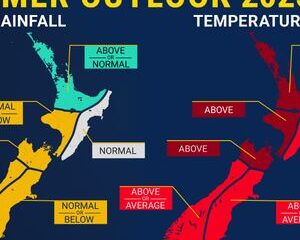Politics
Public Service Reorganization May Impact Ministries for Women, Pacific Peoples

The future of the Ministries for Women and Pacific Peoples is uncertain as the Public Service Commissioner, Sir Brian Roche, considers a significant restructuring of several government agencies in New Zealand. Roche has stated that “all options are on the table,” sparking speculation about whether these ministries may be integrated into larger governmental bodies. He emphasized that he would not rule out any possibilities regarding the future of these ministries.
Roche’s comments follow inquiries made by RNZ to the Prime Minister’s office about potential changes affecting the Ministries for Women, Disabled People, Pacific Peoples, and Māori Development (Te Puni Kōkiri). The office referred these questions to Roche, who is currently evaluating ways to enhance public service efficiency and performance. He noted that there is an opportunity to “reduce fragmentation” within the public sector and strengthen individual agencies to better focus on their core responsibilities.
In addressing concerns over the structure of these ministries, Roche clarified that while he is exploring various options, there are no plans to disband them entirely. He assured that any proposed changes would retain their functions and associated branding, which would help maintain their voice in policy development and service delivery.
Roche also acknowledged the diverse representation of communities within the public service, highlighting the need for improvement in how these groups are served. His remarks came in the context of a broader discussion about the effectiveness of demographic-specific ministries.
The ACT Party, led by David Seymour, has long advocated for the abolition of demographic ministries. Seymour remarked that he had not discussed the future of these ministries with Roche but expressed skepticism about their necessity. He argued that public services should be accessible to all citizens, emphasizing the need to prioritize inherent human value over identity-based funding structures.
Seymour stated, “It’ll be no surprise that ACT has long questioned what is the purpose of a ministry for a specific type of person when all government services should be delivered with all people in mind.” He cautioned that any move to treat people differently based on demographic markers would be regressive.
Public Service Minister Judith Collins did not respond to requests for comments regarding the potential changes to the Ministries for Women and Pacific Peoples. The ongoing discussions about public service reform highlight significant questions about representation and the efficiency of government agencies in New Zealand.
As these conversations unfold, the implications for the Ministries for Women and Pacific Peoples remain a focal point in the broader debate about the role of demographic-specific ministries within the public service.
-

 World1 week ago
World1 week agoPrivate Funeral Held for Dean Field and His Three Children
-

 Top Stories2 weeks ago
Top Stories2 weeks agoFuneral Planned for Field Siblings After Tragic House Fire
-

 Sports3 months ago
Sports3 months agoNetball New Zealand Stands Down Dame Noeline Taurua for Series
-

 Entertainment3 months ago
Entertainment3 months agoTributes Pour In for Lachlan Rofe, Reality Star, Dead at 47
-

 Entertainment2 months ago
Entertainment2 months agoNew ‘Maverick’ Chaser Joins Beat the Chasers Season Finale
-

 Sports3 months ago
Sports3 months agoSilver Ferns Legend Laura Langman Criticizes Team’s Attitude
-

 Sports4 weeks ago
Sports4 weeks agoEli Katoa Rushed to Hospital After Sideline Incident During Match
-

 World2 weeks ago
World2 weeks agoInvestigation Underway in Tragic Sanson House Fire Involving Family
-

 Politics2 months ago
Politics2 months agoNetball NZ Calls for Respect Amid Dame Taurua’s Standoff
-

 Top Stories2 weeks ago
Top Stories2 weeks agoShock and Grief Follow Tragic Family Deaths in New Zealand
-

 Entertainment3 months ago
Entertainment3 months agoKhloe Kardashian Embraces Innovative Stem Cell Therapy in Mexico
-

 World4 months ago
World4 months agoPolice Arrest Multiple Individuals During Funeral for Zain Taikato-Fox




















